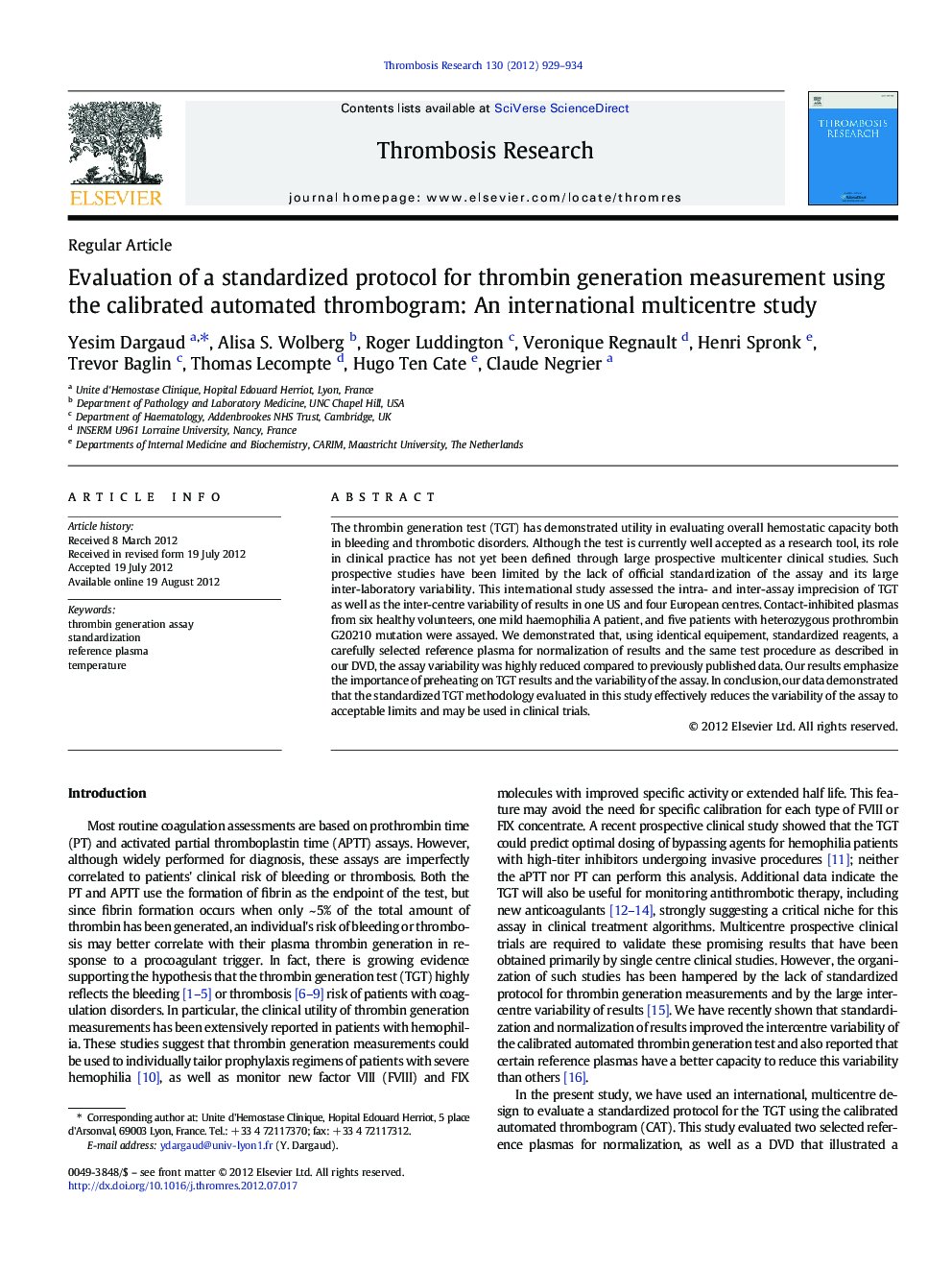| Article ID | Journal | Published Year | Pages | File Type |
|---|---|---|---|---|
| 3028073 | Thrombosis Research | 2012 | 6 Pages |
The thrombin generation test (TGT) has demonstrated utility in evaluating overall hemostatic capacity both in bleeding and thrombotic disorders. Although the test is currently well accepted as a research tool, its role in clinical practice has not yet been defined through large prospective multicenter clinical studies. Such prospective studies have been limited by the lack of official standardization of the assay and its large inter-laboratory variability. This international study assessed the intra- and inter-assay imprecision of TGT as well as the inter-centre variability of results in one US and four European centres. Contact-inhibited plasmas from six healthy volunteers, one mild haemophilia A patient, and five patients with heterozygous prothrombin G20210 mutation were assayed. We demonstrated that, using identical equipement, standardized reagents, a carefully selected reference plasma for normalization of results and the same test procedure as described in our DVD, the assay variability was highly reduced compared to previously published data. Our results emphasize the importance of preheating on TGT results and the variability of the assay. In conclusion, our data demonstrated that the standardized TGT methodology evaluated in this study effectively reduces the variability of the assay to acceptable limits and may be used in clinical trials.
